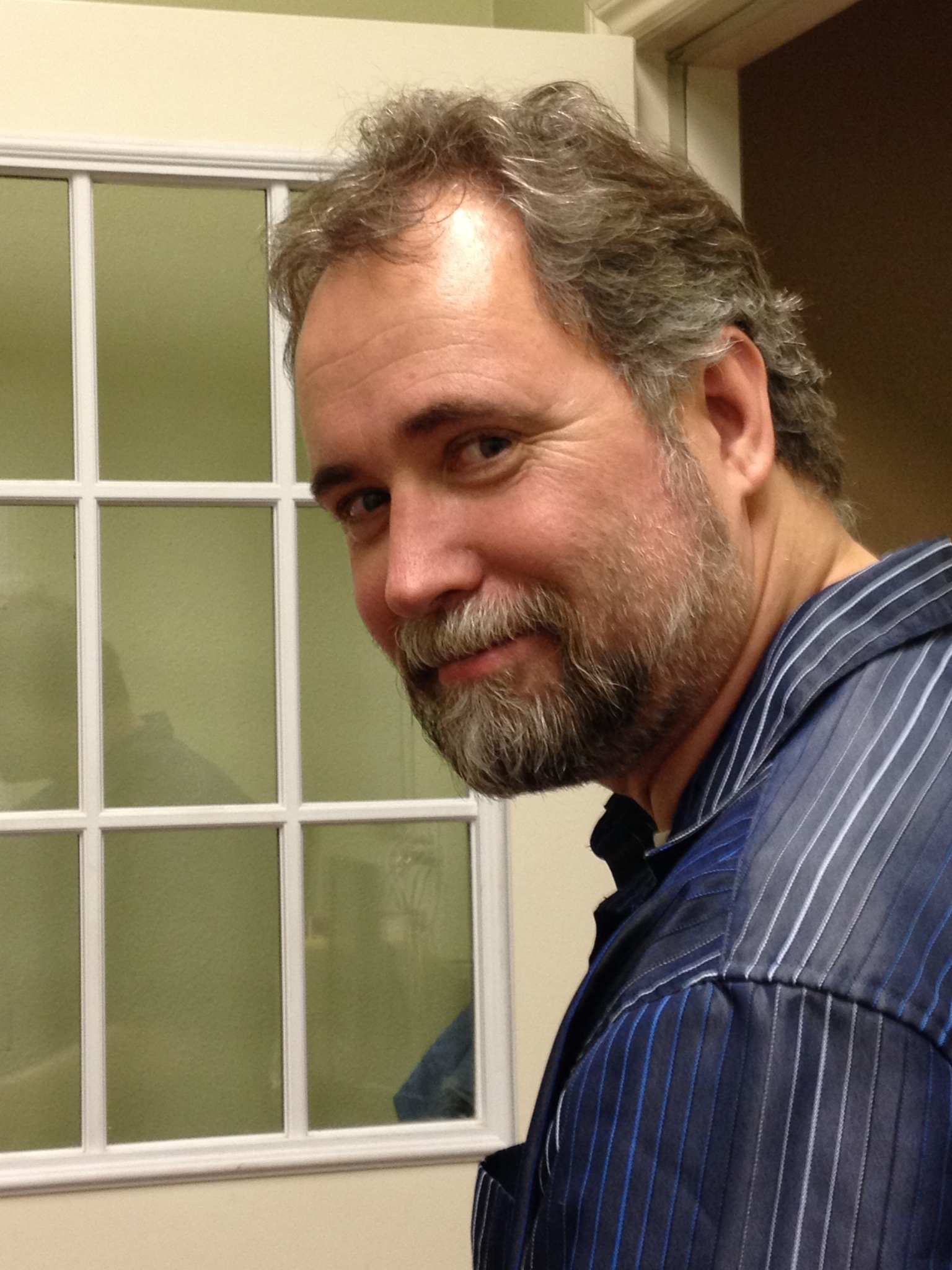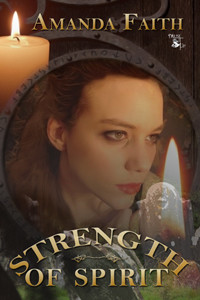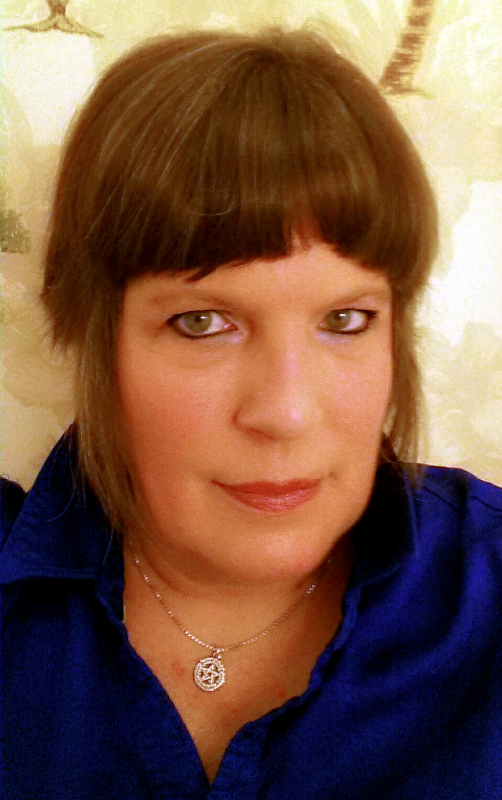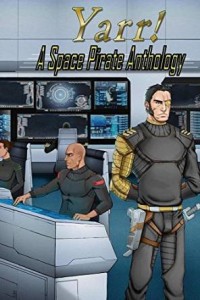A Guest Post by Darin Calhoun
April 2002, I was driving to work on the 210 Freeway, just passing Irwindale, when I glanced at my rear view mirror and saw a white, Scully, Semi-Truck. My Last thought was, “Wow, he’s going fast.” I have no memory of the collision, only fragmented flashes of the aftermath. One such brief moment, I was staring at the instrument panel of my Geo Metro, and someone was holding a wad of cloth on my head. They placed my hand on it so that I could hold it myself. Someone talked to me, but I don’t remember their words or my own. A flash later, I was in a helicopter on a stretcher freezing my ass off because someone had cut up my clothes, and the doors were open. I yelled at them to close the doors. They ignored me. I remember coming around as they wheeled into the emergency room.
The doctor told me that he was going to put staples into my scalp. The skin made a squishing sound as he inspected it. I chuckled. It was like something from a bad movie. He told me there wouldn’t be much pain because there weren’t a lot of nerves back there.
“So what are your hobbies?” asked the doctor.
“I belong to the Society for Creative Anachronism, and I do medieval combat in armor with rattan weapons.”
“So, like jousting?”
“We have equestrian arts but not with heavy armored fighting. Physics works. If we use horses we would hurt each other, and it’s not cool to break your friends.”
The doctor put in the first staple. Everything faded, and a string of curse words that sounds like my voice comes from somewhere distant.
“Just two more.” said the doctor.
I hear the staple gun click, and my world faded even more. Machines chirped and beeped in alarm.
The doctor shakes me. “Hey, hey buddy. Tell me more about that jousting.”
That pissed me off. “I…to…ld…you, it’s, not jousting!”
The doctor gave me a shot of local anesthetic and stitched up the rest of my scalp. A nice four-inch crescent scar between the parietal and occipital area of my brain, the lowest part was about an inch or so above my brain stem.
After some x-rays to make sure my brains weren’t leaking out, they sent me to the recovery room to fill up my diminished blood with saline. Supposedly, I was two quarts low. Then after making a statement to the police that, I don’t recall the details of, my wife, then girlfriend, took me to her work. I nearly passed out in the car. It seemed that the saline in my blood wasn’t really helping and that I was still a few quarts low. So after twenty-four hours of observation I was clear to start my recovery.
At first, I did not realize how much I had lost. What was bad before became worse. It was a challenge just to remain awake. At first, I’d be awake for an hour or two, and then I would fade out. For two weeks, I struggled to be awake for eight hours, so I could return to work. But I was on autopilot. The hours on the bus and at work were a blur. I changed jobs, and I still don’t remember the details. I was in limbo.
Gulf War One hit and I was laid off. I was without a job for the first time in my life. I was collecting unemployment, and in a bad place, but my girlfriend was there to help me. She took me in and I pitched in with money from my disability check while I waited on my settlement from the trucking company that ran me over.
But I was just existing, a bad place for an artist. After the crash, I lost the ability to draw. I had spent twelve years in developing a career in comics, and now that was suddenly gone. To keep my sanity, I turned to writing. I took out three pages I had written five years before as a challenge, a story about a world that had neither magic nor digital technology. I worked at it. I struggled to write a single page a day. I failed more than I succeeded. I still went to the doctors, but they just wanted to give me pills and I wanted rehabilitation–a purpose for my life.
I went to a social security judge for my federal disability and he said, “Mr. Calhoun, you are impaired not disabled.”
“Yes sir, your honor.” I replied.
“If you apply to five jobs and are fired. Then I’ll reconsider your case.”
I was appalled. “Thank you, your honor, but I can’t do that. I will find another way.”
That is when I decided to become a professional writer.
Life had other plans. I received a panicked call from my ex-wife that my daughter had been taken into protective custody by Child Protective Services. After enduring, a hellish bureaucratic quagmire of jumping through hoops my girlfriend and I got custody of my daughter, and I became a househusband and a PTA dad.
My daughter loved my stories. She just hated it when I was writing. So I wrote when she was at school and when she was asleep. It took me seven years to finish my first book and I was shocked to find out why. I had undiagnosed diabetes for seven years due to the accident.
It was in 2009 when I found out. My energy and focus was crap, and my temper had a hair trigger. Although, most of the time I was angry with myself due to frustration. When I talked about it with my mom, I found out she had hypoglycemia. I never knew that about my mom. She suggested that I eat five small meals a day. I did and I felt worse. I felt that I might be diabetic so I bought a blood sugar tester at a drugstore–467.
Oh, crap!
So now, I knew. After a doctors trip, and a diabetic training session, I found out diabetes is a package deal. You get the bonus of high blood pressure and heart disease.
Triple crap!
But I felt better, and now I made the big jump, perusing a career as a writer. I read a half dozen how-to-write books. I also listened to writing podcasts (Yay, Writing Excuses!), went to writing conventions: LtUE in Provo, and World Fantasy Con. But most importantly, I took the Superstars Writing Seminar. Which was not about craft and how to write, but giving the writer tools on how to have a successful writing career, how to set yourself up so you’re not just going from failure to failure.
In the years, after I have found out whom I am as a writer. What my voice was, and where I belong in the wild world of publishing. The Superstar members are on the cutting edge of the industry. They were surfing the e-book revolution while the big 6 (now 5) publishers were in denial of the importance of Amazon.
And just when I thought I had learned all that I could from the Superstars, I volunteered to help run the Word Fire Press booth for Wondercon. I have not worked that hard since I was holding a waterlogged, ice cold, eight-inch line during an underway replenishment in the North Atlantic when I was in the Navy. Everyone was an author, who I swear had a secret contest on who could sell the most books. I struggled to keep up with these hard working writers putting themselves out there. I learned the importance of how to set up a booth for maximum exposure, the Feng Shui of stacking books, and the art of the soft sell, and most importantly, how much stories affect our lives. From when a young man brought dog-eared books, his father had passed on to him and how that son thanked the author for the wonderful childhood memories as the author signed with ink and tears. To the veteran thanking the author for helping him through the hell of war and its aftermath–not a dry eye in the house with that one.
That is why I write. I wish to be a ray of hope in a dark world. And that is my last thought.
About the Author:
Darin Calhoun is an author adrift on the genre seas, with the island of Action and Adventure as his home. Be warned, as he tends to write about strong women and flawed heroes. You may see him posting on Twitter or Facebook at 3AM but this isn’t unusual. He has an abusive muse. Some writers’ muses give them a gentile tap on the shoulder, his uses a sledgehammer to the head.

 Evan Braun is an author and editor who has been writing books for more than ten years. He is the author of The Watchers Chronicle, whose third volume, The Law of Radiance, has just been released. He specializes in both hard and soft science fiction and lives in the vicinity of Winnipeg, Manitoba.
Evan Braun is an author and editor who has been writing books for more than ten years. He is the author of The Watchers Chronicle, whose third volume, The Law of Radiance, has just been released. He specializes in both hard and soft science fiction and lives in the vicinity of Winnipeg, Manitoba. My love for science fiction and fantasy has not wavered. My first book, Strength of Spirit, is an urban fantasy. It came out in 2012 with MuseItUp Publishing. In 2014, it won the 2014 Gold Global eBook Award for Paranormal Mystery. I was so thrilled. Not only is this book my first professional publication, it won an award.
My love for science fiction and fantasy has not wavered. My first book, Strength of Spirit, is an urban fantasy. It came out in 2012 with MuseItUp Publishing. In 2014, it won the 2014 Gold Global eBook Award for Paranormal Mystery. I was so thrilled. Not only is this book my first professional publication, it won an award.
